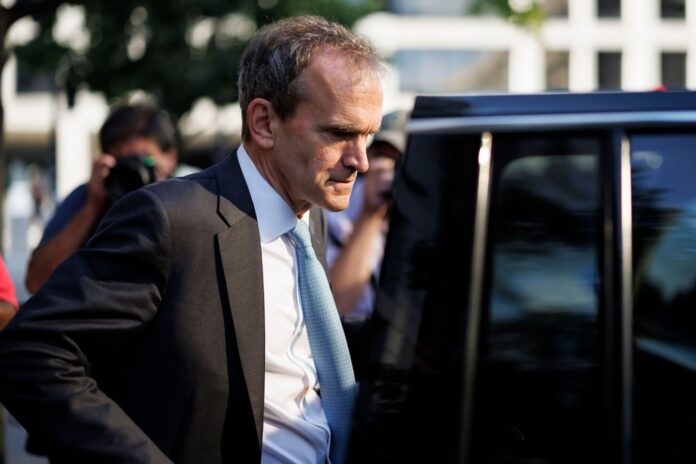U.S. District Judge Amit Mehta will determine at the end of the trial if Google has abused monopoly power in its search and search advertising businesses and if any penalties are warranted. That decision is still months away.
In the meantime, lots of details of Google’s business are likely to emerge, under rules intended to preserve confidentiality of sensitive business information. On Wednesday morning, an attorney for Apple, which is not a party to the antitrust case, complained that government attorneys already have violated those rules. The Apple attorney, whose name was not immediately available, said that two numbers mentioned in passing in the Justice Department’s opening statement might create a “misperception” that they came from Apple’s confidential information. “That would be a violation of the rules of engagement here,” he said.
Justice Department attorney Kenneth Dintzer told Mehta the two numbers he’d said quickly on Tuesday were based on external sources, not from privileged information provided by Apple or Google. “This one slipped out,” he said.
Significant portions of the evidence in the trial have been sealed as trade secrets, despite activists pushing for greater transparency in a trial that could affect how billions of people interact with the internet. The court set up a public telephone line for Tuesday’s opening statements, but the rest of the months-long trial, including Wednesday’s session, will be accessible only in person.
Mehta acknowledged Apple’s protest, but said that he would they leave the matter for now.
“From where I’m sitting, everyone has been quite diligent,” Mehta said. “There’s a large volume of material here.”
None of the lawyers specified what numbers were in question on Wednesday. The complaint appeared to refer to Dintzer saying “In 2020, Google paid 4 to 7 billion dollars under the ISA” on Tuesday morning, according to a court transcript. Dintzer was discussing the search giant’s “Information Services Agreement,” or ISA, with Apple, in which Google pays for its search engine to have be the default on iPhones and other Apple devices.
Dintzer also said in his opening statement that Google pays more than $10 billion per year to device and browser makers to attain default status for its search engine. That broader statement did not draw objections from Google or Apple.
Ahead of the trial, activist groups had criticized the court’s decision to reject requests for a public telephone line for the whole case, so people around the country could listen in.
“The public has a very real stake in this case, and neither Google nor the Court should be allowed to shroud it in secrecy,” Katherine Van Dyck, senior counsel at the American Economic Liberties Project, said in a statement.
Some of the witness testimonies in coming weeks are expected to be closed to the public because of concern they’ll be discussing trade secrets. This is not uncommon in trials about companies’ business practices.
After the Apple interjection, the Justice Department resumed its questioning of witnesses. First on the stand Wednesday was Chris Barton, a former Google executive who had negotiated default search-engine deals for the company with mobile carriers. Prosecutors then recalled Google’s chief economist Hal Varian who’d also testified on Tuesday.
The Justice Department will have the next four weeks to present its case, question witnesses and present evidence. After that, the state attorneys general will have two weeks to make a supplementary case. Google will have three weeks starting Oct. 25 to make its defense.
A judgment in the case likely will not come until well into next year.



